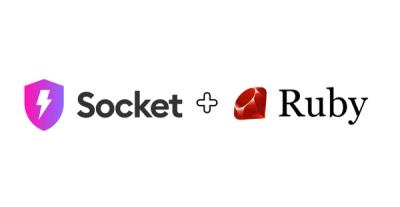license report tool


Generate a license report of the projects dependencies.
Installation
npm install -g license-report
Functionality
license-report gets the dependencies of a program or package from its package.json file and for each dependency adds the installed version, the license type and the author from the corresponding package.json file in the node_modules directory and the latest available version and other data from the (npm) registry where this package was installed from.
As a prerequisite, the dependencies must be installed so that the node_modules directory exists in the path of the package.json file.
Usage
simple:
cd your/project/
license-report
by default, license-report outputs all licenses from dependencies, devDependencies, optionalDependencies and peerDependencies.
To specify one or the other, use --only; e.g.
license-report --only=dev
license-report --only=prod
license-report --only=prod,opt,peer
The 'only' option is a comma separated list of the dependencies to use.
Possible values are:
| value | segment of package.json |
|---|
| prod | dependencies |
| dev | devDependencies |
| opt | optionalDependencies |
| peer | peerDependencies |
explicit package.json:
license-report --package=/path/to/package.json
customize a field's label:
Used as column headers in table / csv / html output. For html output the labels of all fields in the output must be unique.
license-report --department.label=division
customize a fields default value:
Only applicable for the fields in the list later in this document (look for "Fields with data set in the configuration of license-report")
license-report --department.value=ninjaSquad
use another registry:
license-report --registry=https://myregistry.com/
registry with authorization:
To use a npm registry that requires authorization, the option npmTokenEnvVar must contain the name of an environment variable that contains the required npm authorization token (the default name is 'NPM_TOKEN'). An example:
# if the name of the environment variable containing the bearer token for npm authorization is 'NPM_TOKEN'
license-report --registry=https://myregistry.com/ --npmTokenEnvVar=NPM_TOKEN
The name of this environment variable (in the example: 'npm_token') should not be added as an option to the license-report config file, as this implies a severe security risk, when this file is checked in into a git repository. A warning is emitted if such an option is found in the config file.
generate different outputs:
license-report --output=table
license-report --output=json
license-report --output=csv
license-report --output=html
# replace default ',' separator with something else
license-report --output=csv --delimiter="|"
# output csv headers (fields) on first row
license-report --output=csv --csvHeaders
# use custom stylesheet for html output
license-report --output=html --html.cssFile=/a/b/c.css
# see the output immediately in your browser, use hcat (npm i -g hcat)
license-report --output=html | hcat
select fields for output:
If only a few fields are required in the output, the easiest way of selecting the fields is via --fields command line arguments.
There must be at least 2 --fields options, otherwise license-report
will throw an error.
# set options with command line arguments
license-report --output=csv --fields=name --fields=installedVersion
If more fields are needed, the best way is to use a custom config file, that contains a fields array.
# set options with command line option for custom (partial) config file
license-report --output=csv --config license-report-config.json
# example of config file for backward compatible output:
{
"fields": [
"department",
"relatedTo",
"name",
"licensePeriod",
"material",
"licenseType",
"link",
"comment",
"installedVersion",
"author"
]
}
exclude packages:
license-report --exclude=async --exclude=rc
Screenshots


Available fields
Fields with data of the installed packages:
| fieldname | column title | data source |
|---|
| name | name | name of the package |
| licenseType | license type | type of the license of the package (e.g. MIT) |
| link | link | link to the repository of the package |
| installedFrom | installed from | the download source for the installed package (optional field) |
| remoteVersion | remote version | latest available version of the package (can be different from the installed version) |
| installedVersion | installed version | installed version of the package (can be different from the remote version) |
| definedVersion | defined version | version of the package as defined in the (dev-) dependencies entry (can start with a semver range character) |
| comment | comment | deprecated (replaced by field 'remoteVersion'); will be removed in a future version |
| author | author | author of the package |
Fields with data set in the configuration of license-report:
| fieldname | column title | set value |
|---|
| department | department | --department.value=kessler |
| relatedTo | related to | --relatedTo.value=stuff |
| licensePeriod | license period | --licensePeriod.value=perpetual |
| material | material / not material | --material.value=material |
More configuration options
See lib/config.js for more details e.g. on customizing the generated html data.
Use rc for further customization.
Debug report generation
By setting the debug environment variable as follows, detailed log information is generated during the report generation. For details see the documentation of the debug package on npm.
export DEBUG=license-report*
Changelog
For list of changes and bugfixes, see CHANGELOG.md.
Contributing
The CHANGELOG.md is generated with standard-changelog (using the command npm run release).
To make this possible the commit messages must follow the conventinal commits specification.
<type>: <description>
<optional body>
The following is the list of supported types:
- build: changes that affect build components like build tool, ci pipeline, dependencies, project version, etc...
- chore: changes that aren't user-facing (e.g. merging branches).
- docs: changes that affect the documentation.
- feat: changes that introduce a new feature.
- fix: changes that patch a bug.
- perf: changes which improve performance.
- refactor: changes which neither fix a bug nor add a feature.
- revert: changes that revert a previous commit.
- style: changes that don't affect code logic, such as white-spaces, formatting, missing semi-colons.
- test: changes that add missing tests or correct existing tests.
To ensure the syntax of commit messages commitlint is used, triggered by husky. This feature must be activated with npm run activate-commitlint once for every local clone of license-report.









